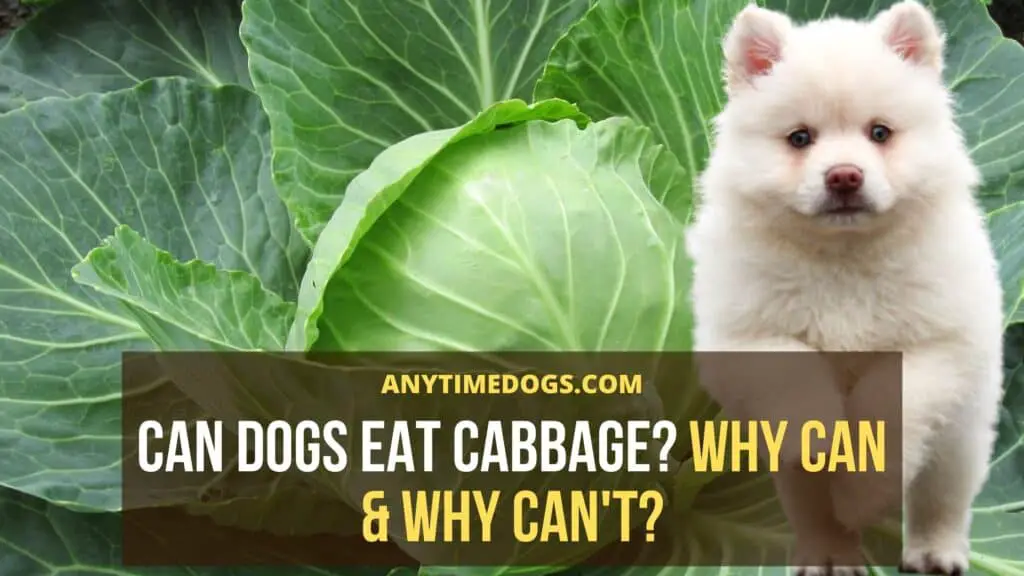Cabbage is one of the many vegetables that make a salad incomplete by its absence. A crunchy and delicious coleslaw makes about any dish a treat to savor. But what about my canine friend, can dogs eat cabbage?
The answer to this question is a simple yes, but feed it with precaution.
How do I know how much is too much? Give this article a quick read to find about all about cabbage and dogs. Is cabbage safe for my dog? Can dogs eat cabbage? You’ll have all the answers.
Can Dogs Eat Cabbage?
Yes, dogs can have cabbage but should be fed with caution. Since cabbage contains polyphenols, it is jam-packed with nutrients and antioxidants. Green cabbage, in particular, is rich in vitamins C, B1, B6, and K.
Vitamins C and K help strengthen your pup’s immune system and aid in healthy digestion.
However, cabbage contains thiocyanates which might trigger your dog’s thyroid glands. This can make it difficult for the glands to carry out their functions. When the thyroid glands are suppressed it can lead to a condition called hypothyroidism.
1) How Much Is Too Much For Your Dog?
Cabbage is one of the vegetables, including Brussels sprouts, which can make a dog gassy. You can feed a little chopped cabbage or sprinkle it atop their food. Even this much cabbage is enough to provide your pup with nutritional benefits.
Feeding anything more than a few chopped leaves will trigger your dog’s thyroid glands. If you are short with cabbage this doesn’t mean you can feed your dogs with Cheetos or Cream cheese.
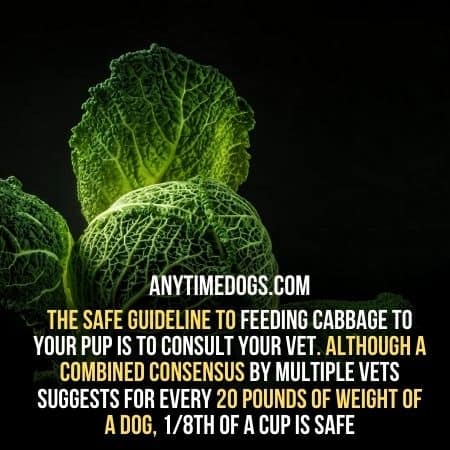
The safe guideline to feeding cabbage to your pup is to consult your vet. Although a combined consensus by multiple vets suggests for every 20 pounds of weight of a dog, 1/8th of a cup is safe.
2) Is Cabbage Safe For Dogs?
Yes, cabbage is safe for dogs but should be fed in moderation. Throughout the website, you will come across articles on different foods. Most of the foods such as basil, almond milk, plantains even pickles are safe for dogs, in some cases, really beneficial.
However, all of these foods must be fed in moderation because too much can trigger issues in your dog’s body.
So far as cabbage is concerned, red cabbage, in particular, can aid in the prevention of cancer. Cabbage has also proven to promote a healthy and shiny coat. Remember, your dog should only eat a limited amount of cabbage.
3) Can Dogs Eat Cabbage? Cooked Or Raw Cabbage?
Are you wondering if cooked cabbage will provide the same nutritional benefits as raw cabbage or vice versa? Then read on.
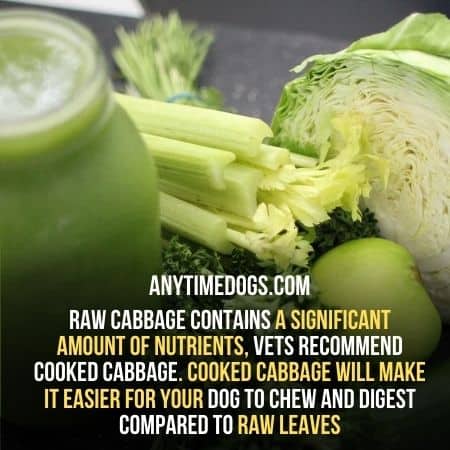
Although raw cabbage contains a significant amount of nutrients, vets recommend cooked cabbage. Cooked cabbage will make it easier for your dog to chew and digest compared to raw leaves.
The reason why cooked cabbage is preferred over raw is that cooking kills bacteria. Not only that, it kills the effect of thiocyanates. This way, even if your dog does ingest large quantities of boiled or cooked cabbage, its thyroid glands will stay inactive.
3 Benefits Of Feeding Cabbage To Dogs
Cabbage has many benefits for your pets, especially for dogs. A few of the benefits of feeding cabbage to dogs are discussed below.
1) Cancer-Fighting:
Cabbage contains a compound called sulforaphane. It has proven to:
- Fight cancer cells,
- Reduce the risk of heart diseases, and
- Lower blood pressure.
2) Low In Calories:
One leaf of cabbage only contains approximately 6 calories and more than half of the flower of cabbage contains only 17 calories. If you’re looking for a low-calorie snack, get your hands on some cabbage.
3) Rich In Nutrients:
Cabbage is rich in nutrients such as antioxidants and vitamins. Vitamin C in cabbage will help keep your dog’s bones, muscles, skin, coat, and blood vessels healthy.
We have all heard about good bacteria and bad bacteria. Cabbage is rich in fiber and the right amount of it provides a healthy source of bacteria for your dog.
2 Risks Of Feeding Cabbage To Dogs
It is a common saying that a thing with benefits has some side effects also. Cabbage no doubt is a very beneficial vegetable for dogs but it has some side effects also for your dogs.
1) Lead To An Upset Stomach:
Too much cabbage can make them gassy and uncomfortable. It is better to slowly and gradually incorporate cabbage into your dog’s diet.
2) Lead To Hypothyroidism:
One reason why cabbage can be harmful to your dog is hypothyroidism. This is a disease caused by eating too much raw cabbage. The thiocyanate present in cabbage can cause this disease.
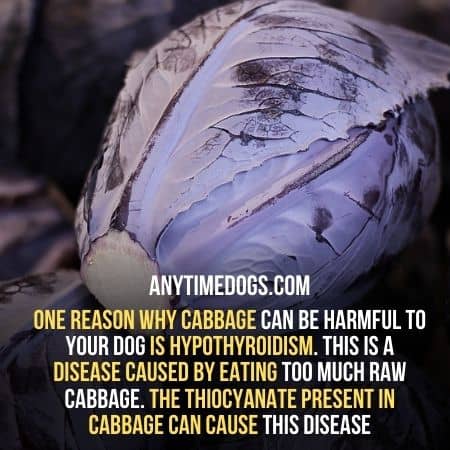
The solution to getting rid of the impact of thiocyanate is by properly boiling or steaming the cabbage.
Symptoms of hypothyroidism:
- Low heart rate
- Dry and dull coat, excessive shedding
- A sharp increase in weight
- Slow hair growth
- Anxiety
- Lethargy
3 Alternate Vegetables That Are Good For Your Dog
We have established that cabbage is healthy and safe for your dog, but it can lead to gastrointestinal issues. Let us have a look at other vegetables that are a nutritional snack for your pup.
1) Peas:
Green peas are a great source of vitamins, minerals, and antioxidants. They are also rich in dietary fiber. Moreover, peas aid in easy digestion and are an energy-boosting snack. They are also rich in vitamin K which helps maintain a shiny coat and improve bone health.
Peas contain an antioxidant called lutein which helps maintain eye, heart, and skin health.
Try adding some steamed or boiled peas to your dog’s food as a quick nutritional boost.
2) Sweet Potato:
Sweet Potato comes with a range of benefits. It is an excellent source of vitamins A, B6, and C. It is also low-fat and contains a high amount of dietary fiber.
Sweet potato has been classified as one of the best sources of vitamin A which is perfect for your dog’s health. Vitamin A deficiency can cause excessive shedding and poor vision. Resort to the sweet potato for a boost in potassium, calcium, iron, and vitamin A, B6, and C levels.
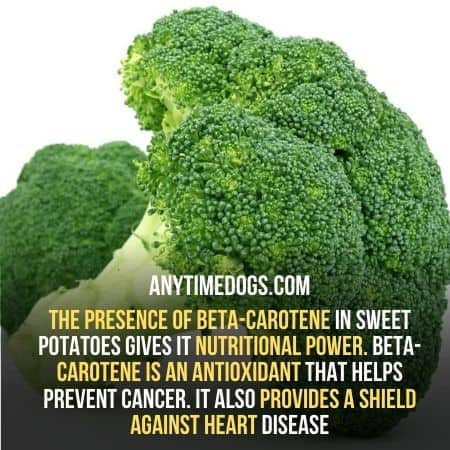
The presence of beta-carotene in sweet potatoes gives it nutritional power. Beta-carotene is an antioxidant that helps prevent cancer. It also provides a shield against heart disease.
Sweet potato is also a healthy alternative to cabbage and white potato. Steam or boil this yummy vegetable and let your dog enjoy the benefits it provides. Remember not to season this treat before feeding your dog to avoid any complications.
3) Celery:
Celery is an excellent source of vitamins A, C, and K.
It contains potassium and calcium and can aid in your dog’s dental hygiene. Celery is the perfect snack for overweight dogs since it is fat-free and high in dietary fiber.
Cut up celery into small pieces to avoid choking and easy digestion. You must always consult your vet before feeding anything to your dog, to gain an expert’s advice.
Apart from vegetables, you can give your pup foods like scallops as well!
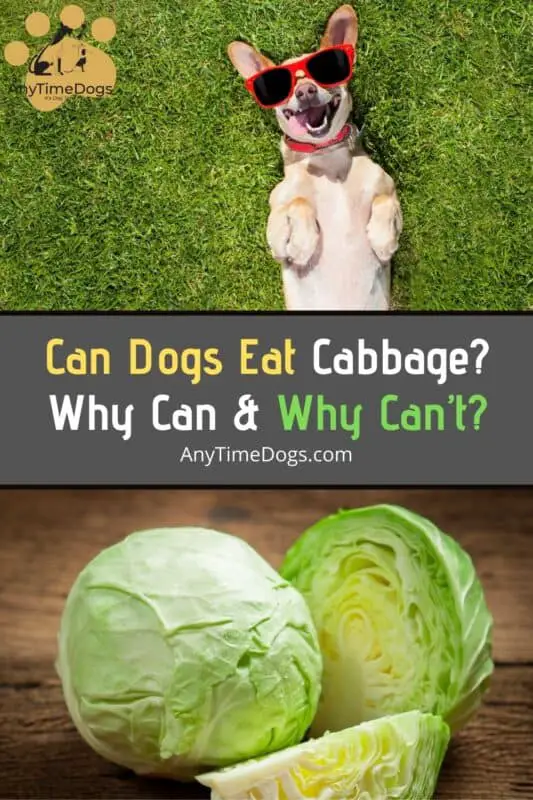
Final Words:
To conclude, can dogs eat cabbage? Well, we have established that dogs can eat cabbage. However, cabbage should be given to dogs in moderation. Regardless of how many nutrients it provides, it can be harmful if your dog ingests too much.
Like other foods, you must always consult your veterinarian. Before feeding cabbage to your pup, contact your veterinarian to know all about it.
Check out “Can dogs eat pickles?” to find out more about vegetables that are filled with nutritional benefits for your pup.

